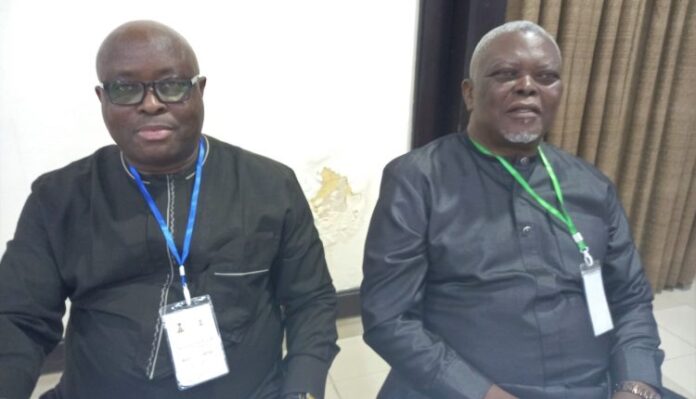Technology has undoubtedly helped deepen improvement in vessel surveys, as marine surveyors use drones to conduct different operations and get same quality results, while spending less man-hour and physical exertion.
Speaking recently at a marine surveyors’ workshop organised by the Nigerian Maritime Administration and Safety Agency (NIMASA), Denis Ake, a marine and offshore manager with Bureau Veritas, talked on how technology has made remote ship survey possible and inclusive.
This of course is significant in the 2022 World Maritime Day theme, which the International Maritime Organisation(IMO) has disclosed as ‘New Technologies for Greener Shipping.’
“The theme provides an opportunity to focus on the importance of a sustainable maritime sector and the need to build back better and greener in a post pandemic world,” the IMO had said.
One good example Ake gave, is how the use of drones boost the inspection of very large ballast water tanks in floating production storage and offloading (FPSO) vessels.
“For example, a situation where you have to inspect ballast water tank in an FPSO; the ballast water tank of an FPSO, is huge. Before, surveyors used to go to inspect such tanks with huge capacity, spending as much as three hours inside.
“Looking at the time consumed in the inspection, the physical task demanded in climbing frames, was huge. Nowadays we have remote inspection equipment to do all these.
“We can send a drone down, while you stay on deck or in a cabin with a monitor and you control to the area you want to focus, to get what you want to see. The results are the same. You will save time, and energy is conserved,” Ake said.
The marine surveyor, however, noted that while several surveys could be done remotely, annual ship surveys still demands that a surveyor goes on board, get his checklist and do all the survey physically.
In another development looking at how some Nigerian shipowners cannot participate in our shipping trade due to the IOCs’ insistence on only vessels registered with the International Association of Classification Societies (IACS), seasoned marine engineer and surveyor, Kuzi Onyibe, advised on policy readjustment to consider expansion.
Engr. Kuzi noted that some indigenous shipowners who have the financial strength actually have their vessels registered with the IACS, while others are registered under other Classes.
He said: “The IOCs want standard vessels to work in their establishments, so insist on the IACS Class. And we have so many Nigerian registered vessels with that IACS Class; which are like the ivy class of the classification societies. And, there are so many other classification societies; more than 300 world-wide.
“In the Nigeria situation, they should try to find a way of changing that policy that says it should only be IACS Class. But who would fight the fight to make the change? And these things have been existent for long. It is more about policy, which should address a need for expansion to include other others.”
Source: Onepageafrica



